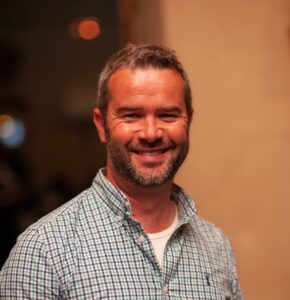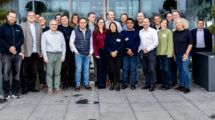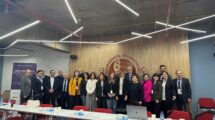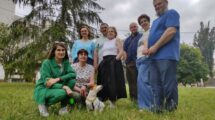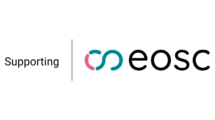KISTI joins the Asiapacific-Europe Ring (AER) to enhance research collaborations and resilient network connectivity
(Reproduced from AER press release, issued 14 Mar 2023, in Nepal)
KISTI has signed a Memorandum of Understanding (MoU) with AER to become the newest member of the collaborative AER network, joining other prominent research and education networks in the Asia-Pacific and Europe region. The signing ceremony was held today at the APAN55 Meeting in Nepal. Buseung Cho, Director of KREONET Center, KISTI, represented KISTI, to sign this MoU with Professor Lee Bu Sung, Chair of the AER Steering Group.
KISTI’s entrance not only expands the AER’s partnership but also adds a significant level of resilience to the 100G network ring. KISTI’s advanced network infrastructure and expertise in scientific and technological information services will strengthen the AER backbone within East Asia and Europe, fostering greater collaboration and scientific advancements across the regions.
As a new AER member, KISTI will bring with it a new network connection and research community to strengthen the AER backbone within East Asia and to Europe. The institute has recently procured a 100Gbit/s connection between Daejeon, Republic of Korea and Singapore, and from Singapore to Amsterdam, The Netherlands. This will provide greater network resilience as well as faster connectivity between the research communities and institutions in the region and with Europe.

The initial AER MoU, signed in July 2019, set up a cooperative arrangement for leading-edge Research and Education Networks (RENs) with 100G connectivity between Europe and Asia to provide back up for each other in the event of any link failure, thereby creating an extremely robust and resilient 100G network ring.
Besides leveraging on the rich network topology to build multiple paths and provide network backup resilience between the various member RENs and research institutions, the agreement includes the coordination of engineering and management activities, cooperation on deployment of emerging network technologies and services, and the development of applications with high bandwidth demands. It will also facilitate shared routing practices, and the sharing of measurement data.
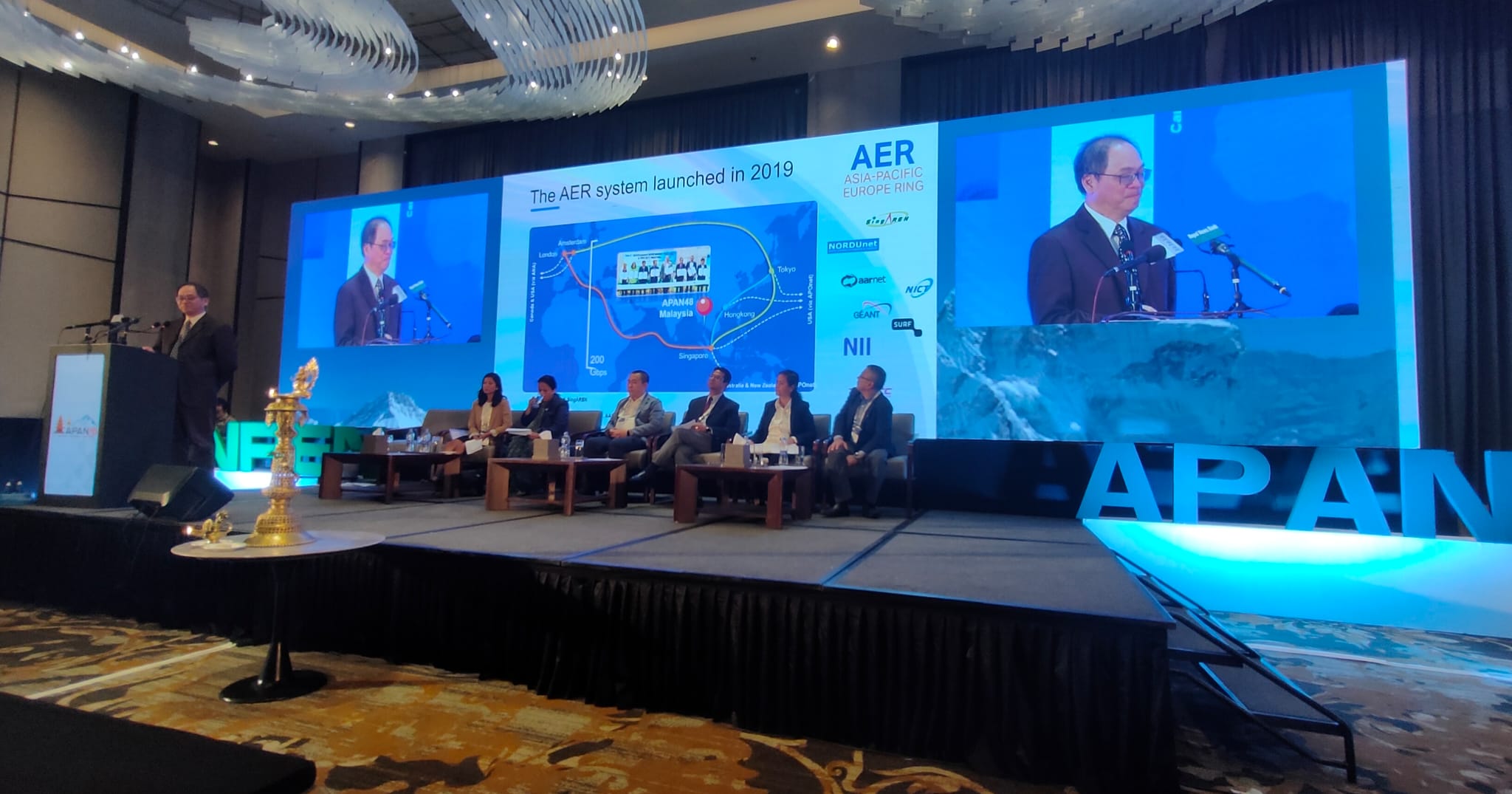
This inclusion of KISTI into the Asiapacific-Europe Ring (AER) alongside its original members AARNet, GÉANT, HARNET, KAUST, NICT, NII, NORDUnet, SingAREN, SURF, and TEIN*CC, marks a significant and exciting milestone in building a more resilient, high-speed network services delivery system to benefit researchers globally. The expansion of the AER with the addition of KISTI reflects the growing importance of international collaboration and connectivity in research and education.
Besides exploring new opportunities to advance research and education across the Asia-Pacific and Europe region, the expanded and strengthened AER network can leverage collective expertise and resources to enable researchers and academics to collaborate seamlessly, share knowledge and data, address global challenges and accelerate ground-breaking scientific discoveries for the benefit of society.
“KREONET, with its international and local connectivity, is very excited to join AER to further strengthen the resiliency of the international network connectivity; we look forward to contributing to global research collaborations together with great partners”, said Dr Buseung Cho, Director of KREONET.
“KISTI has always been an active member in the community. The signing of this MoU reflects the spirit of working together in our community in support of the ever growing needs of collaborative research and education between Asia and Europe”, said Professor Lee Bu Sung, Chair of AER Steering Committee.
About the partners
- AARNet is Australia’s National Research and Education Network. AARNet is a licensed telecommunications carrier, owned by the Australian Universities and CSIRO. The AARNet network connects more than two million users: researchers, faculty, staff and students, to the commercial internet and to their peers around the world through its own extensive national and international network. For more information, visit aarnet.edu.au or follow @aarnet on twitter.
- GÉANT is the collaboration of European National Research and Education Networks (NRENs). Together we deliver an information ecosystem of infrastructure and services to advance research, education, and innovation on a global scale. For more information, visit geant.org or follow @GEANTnews on Twitter.
- HARNET (the Hong Kong Academic and Research NETwork) is operated by Joint Universities Computer Centre (JUCC), which is a wide area network that links up the campus networks of the eight tertiary institutions in Hong Kong and connects them to the global Research and Education community. JUCC is a non-profit making organization founded in 1970 to promote the development, deployment, operation and technology transfer of advance network infrastructure for innovation, research and education excellence in Hong Kong. Please visit https://www.jucc.edu.hk/ for more information.
- KAUST, King Abdullah University of Science and Technology advances science and technology through distinctive and collaborative research integrated with graduate education. Located on the Red Sea coast in Saudi Arabia, KAUST conducts curiosity-driven and goal-oriented research to address global challenges related to food, water, energy, and the environment. Established in 2009, KAUST is a catalyst for innovation, economic development and social prosperity in Saudi Arabia and the world. The University currently educates and trains master’s and doctoral students, supported by an academic community of faculty members, postdoctoral fellows and research scientists. With over 100 nationalities working and living at KAUST, the University brings together people and ideas from all over the world.
- KISTI, a leading research institute in science and technology information, leads open science based on science and technology infrastructure, digital-based R&D innovation and new growth engines with world-class supercomputing, networking and data analysis technology. KISTI has operated KREONET, the national research and science network of Korea, since 1988 and been a core cyber infrastructure to enable and accelerate the national science and technology innovation in the era of digital transformation, but also new scientific discoveries in data-intensive big science.
- NICT is Japan’s sole National Research and Development Agency specializing in the field of information and communications technology (ICT). NICT is charged with promoting ICT sector as well as research and development in ICT, which drives economic growth and creates an affluent, safe and secure society.
- NII, National Institute of Informatics (NII) operates the Science Information Network (SINET), that connects about 1,000 universities and research institutions throughout Japan via nationwide access points. SINET also has international lines to Europe, Asia, and USA to facilitate global collaboration in research and education.
- NORDUnet is the Nordic Gateway for Research and Education, a joint collaboration by the 5 Nordic National Research & Education Networks in Denmark (DeiC), Finland (Funet), Iceland (RHnet), Norway (Sikt), and Sweden (SUNET).
- SingAREN is Singapore’s National Research and Education (R&E) Network and the sole provider of local and international networks dedicated to serving the R&E community in Singapore. SingAREN facilitates high-speed transfers of large datasets, both domestically and across international boundaries, for scientific research and enables advanced network technology demonstrations through its resilient links and high-speed fibre network. The SingAREN Open Exchange (SOE) interconnects Singapore’s R&E community to the R&E networks in other countries, including Asia, Australia, Europe and the US. For more information, please visit singaren.net.sg
- SURF is a cooperative association of Dutch educational and research institutions in which the members combine their strengths to enable reliable and innovative ICT facilities. SURF encourages the formation of the ecosystems in which members and their stakeholders collaborate, innovate and share knowledge, based on shared values and agreements. SURF forges strong coalitions for procurement and service development. SURF provides infrastructure, services, and expertise that are essential to the sovereignty and international standards of education and research.
- TEIN*CC is a non-profit foundation for managing Asi@Connect, a co-funded project of the EU and Asia-Pacific Partners. Asi@Connect provides a dedicated regional high capacity and high-quality internet network, Trans-Eurasia Information Network (TEIN), for research and education (R&E) communities across Asia-Pacific and Europe, and leverages e-infrastructures developed for public service projects. TEIN*CC actively collaborates with other regional R&E network organisations around the world to provide better opportunities for research and education to the TEIN community.

